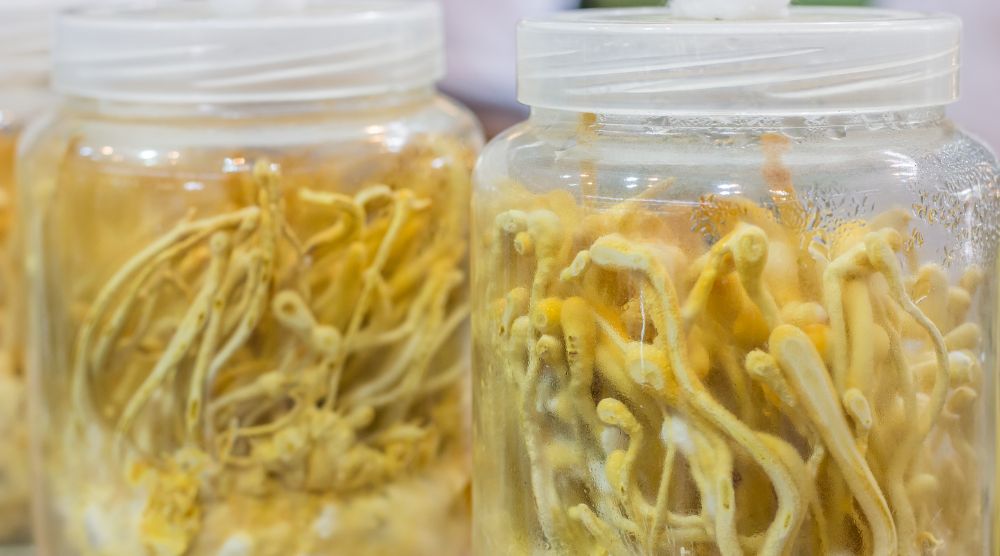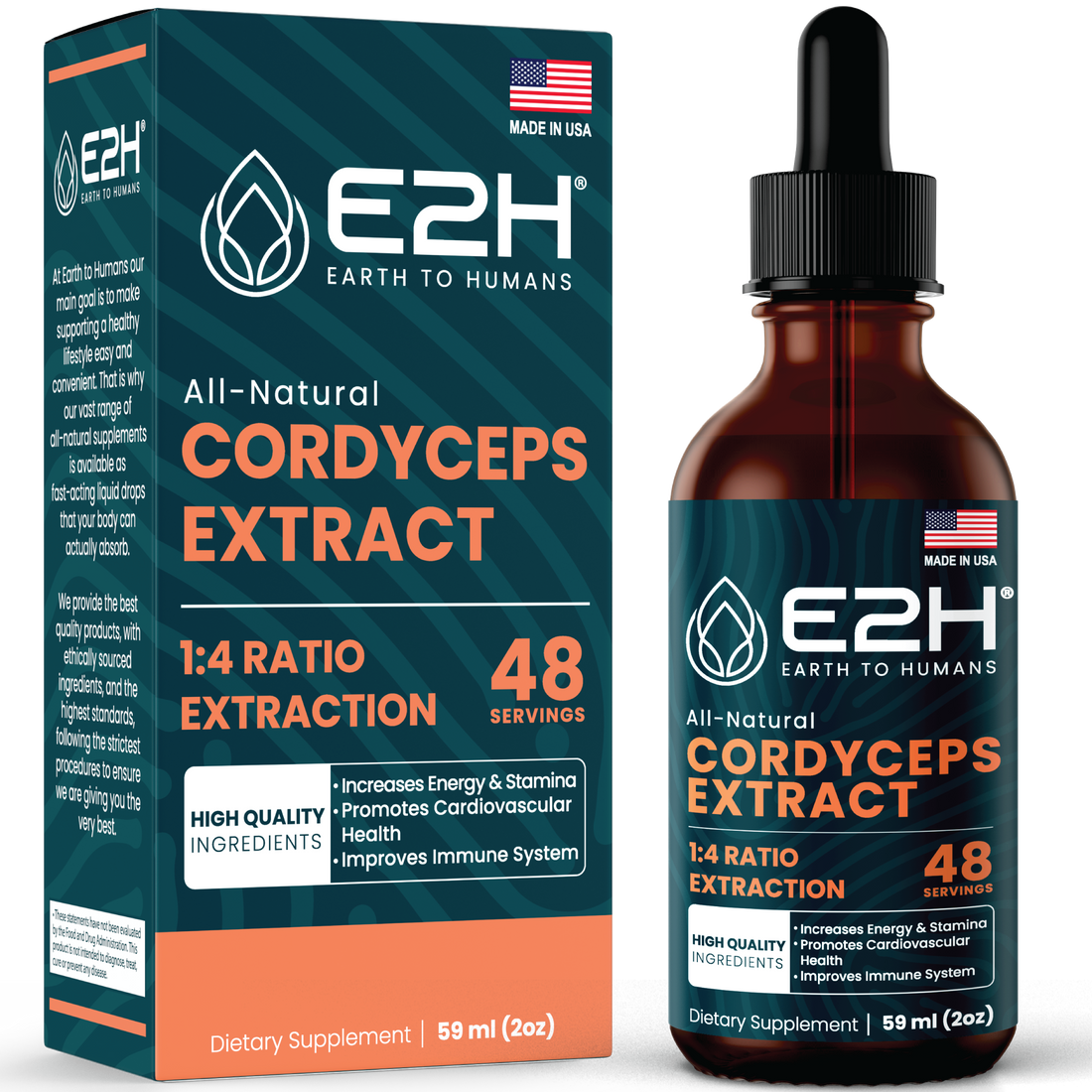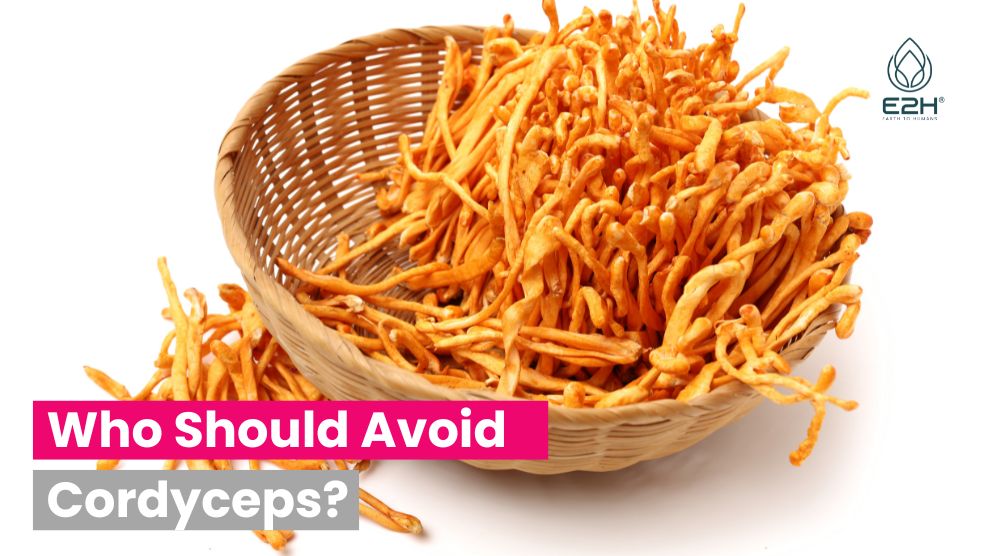How Do Cordyceps Improve Immune System: Cordyceps enhance the immune system by stimulating the activity of certain immune cells, modulating inflammation, and promoting the release of immune-protective compounds, backed by various scientific studies.
Imagine harnessing the power of this unique fungus to bolster your immune defenses, especially in times when a robust immune system is not just desirable, but crucial.
Continue reading to explore the fascinating science behind Cordyceps and discover how integrating it into your wellness routine could be a game-changer for your immune health.
How do Cordyceps interact with the immune system?
Cordyceps interacts with the human immune system in several notable ways, primarily through its bioactive compounds like cordycepin and polysaccharides. These compounds have demonstrated potential in:
- Modulating Immune Responses: Cordyceps can influence the activity of various immune cells, such as macrophages and NK cells, potentially enhancing the body’s ability to fight infections and disease.
- Anti-inflammatory Effects: Certain compounds in Cordyceps may help regulate inflammatory responses, potentially mitigating excessive inflammation and supporting immune balance.
- Antioxidant Activity: Cordyceps exhibits antioxidant properties, which can help protect cells from oxidative stress and support overall immune function.

What are the key compounds in Cordyceps that benefit the immune system?
Cordyceps contains several key compounds that are thought to confer benefits to the immune system:
- Polysaccharides: Known to exhibit immunomodulatory effects, enhancing cellular and humoral immunity.
- Cordycepin: Recognized for its potential anti-inflammatory, antioxidant, and anti-tumor activities.
- Beta-Glucans: Noted for their ability to modulate immune responses and potentially enhance the body’s defense against pathogens.
- Adenosine: Associated with various physiological processes, including anti-inflammatory responses and potential immune modulation.
How do Cordyceps improve immune system: All Secrets
Cordyceps, a genus of parasitic fungi, has garnered attention in both traditional medicine and contemporary health discussions for its potential immune-boosting properties. The mechanisms through which Cordyceps may enhance the immune system are multifaceted and involve several key compounds and pathways, some of which might be less known to the general public:
Modulation of Immune Cell Activity:
- Natural Killer (NK) Cells: Cordyceps has been observed to enhance the activity of NK cells, which play a crucial role in eliminating virus-infected and tumorigenic cells. A study involving a Cordyceps mycelium culture extract (CBG-CS-2) demonstrated a significant enhancement in NK cell cytotoxic activity after eight weeks of administration.
- Macrophages: Cordyceps can influence macrophage activity, which is pivotal for innate immunity and inflammation regulation. Macrophages engulf pathogens and produce signaling molecules that help coordinate immune responses.
Influence on Cytokine Production:
- Cordyceps can modulate the production of cytokines, which are signaling molecules that help regulate immune and inflammatory responses. For instance, it may influence the production of interleukins, which are vital for immune cell communication and coordination.
Anti-inflammatory and Antioxidant Properties:
- Cordyceps contains compounds like cordycepin, which exhibit anti-inflammatory properties, potentially mitigating excessive or chronic inflammation that can be detrimental to immune function.
- The antioxidant properties of Cordyceps help combat oxidative stress, which can otherwise impair immune function and overall health.
Adaptogenic Qualities:
- Cordyceps is often categorized as an adaptogen, implying it may help the body adapt to stress and maintain homeostasis, which is crucial for maintaining a balanced immune response.
Enhancement of Cellular Energy Production:
- Cordyceps is known to influence cellular energy production by potentially increasing ATP synthesis. Adequate energy production is vital for optimal immune cell function, particularly during immune responses that demand increased energy, such as during an infection.
Influence on T-Cell Differentiation:
- Preliminary research suggests that Cordyceps may influence T-cell differentiation, which is pivotal for adaptive immunity and involves the development of T-cells into various subtypes, each with specific roles in managing immune responses.
Potential Antiviral Properties:
- Some studies suggest that Cordyceps may possess antiviral properties, potentially inhibiting the replication of certain viruses, although this area warrants further research for conclusive insights.
Influence on Immunoglobulin Levels:
- Cordyceps might influence the levels of immunoglobulins, which are antibodies that play a crucial role in identifying and neutralizing pathogens.
What is the recommended dosage of Cordyceps for enhancing immunity?
The recommended dosage of Cordyceps for enhancing immunity can vary based on factors like the specific supplement, the form of the Cordyceps extract used, and individual health needs.
Common dosages in supplements might range from 1,000 to 3,000 milligrams per day, but these can vary widely. Some studies have utilized specific dosages for research purposes, such as a study using a Cordyceps mycelium culture extract (CBG-CS-2) which administered 1,680 milligrams per day for eight weeks.
However, it’s crucial to note that optimal dosages for immune enhancement in humans are not well-established and can depend on various factors. Always consult with a healthcare professional to determine an appropriate and safe dosage based on your specific health needs and conditions.
How long does it take to see improvements in immune function?
The timeframe to observe noticeable improvements in immune function after taking Cordyceps can vary widely due to factors like individual health status, dosage, and the specific immune parameters being measured. Some studies have shown changes in immune markers after several weeks of consistent Cordyceps supplementation.
For instance, a study involving a Cordyceps mycelium culture extract (CBG-CS-2) demonstrated a significant enhancement of natural killer (NK) cell activity after eight weeks of administration. However, it’s crucial to note that individual responses can differ, and a healthcare professional should guide usage for optimal and safe results.
Can I take Cordyceps with other supplements or medications?
Cordyceps is generally considered safe for most people when taken in recommended amounts. However, combining it with other supplements or medications should be approached with caution. Cordyceps can potentially interact with immunosuppressive medications, affecting their efficacy.
Additionally, due to its potential impact on insulin sensitivity and blood sugar levels, caution is advised when combining it with diabetes medications. Always consult with a healthcare professional before introducing Cordyceps alongside other supplements or medications to ensure that it is safe and will not interfere with the efficacy of other substances being taken.
What research studies support the immune-boosting properties of Cordyceps?
Research studies have illuminated clinical aspects of the potential of Cordyceps in immune modulation. For instance:
- NK Cell Activity: A study involving CBG-CS-2, a Cordyceps mycelium culture extract, showed a 38.8 ± 17.6% enhancement in NK cell cytotoxic activity after eight weeks of administration.
- Polysaccharides: Cordyceps polysaccharides have been highlighted for their immunomodulatory effects, enhancing innate immune and cell-mediated immune responses, and inhibiting tumor growth by elevating NK cell, IFN-γ, and TNF-α activity levels.
- Antioxidant Properties: Some studies suggest that Cordyceps has antioxidant properties, which can indirectly support immune health by mitigating oxidative stress.
Where can I buy Cordyceps supplements?
Cordyceps supplements can be procured from a variety of platforms ensuring accessibility and convenience for potential users. E2H (Earth to Human) is a notable provider, offering a range of Cordyceps supplements with a focus on quality and sustainability.
Additionally, global online retailers such as Amazon provide a wide array extract of cordyceps options, catering to different brands, formulations, and price points. Walmart, both in-store and online, also stocks various Cordyceps supplements.
Furthermore, local health stores often carry such supplements, providing an opportunity to speak with staff about the available options and potentially discovering other similar health-boosting products.
Which brands of Cordyceps supplements are most trusted?
E2H (Earth to Human) stands out as a trusted brand in the Cordyceps supplement market, gaining recognition for its commitment to delivering high-quality, potent, and sustainably sourced products. The brand emphasizes the purity and efficacy of its supplements, ensuring they are crafted following stringent quality control standards.

Consumers often seek brands like E2H that transparently share their sourcing and production practices, ensuring the integrity of the product. Trust is also built through customer reviews and professional recommendations, so exploring these aspects can provide additional insights into the reliability and efficacy of E2H’s Cordyceps supplements.
Are there affordable alternatives that provide similar benefits?
Yes, there are affordable alternatives to Cordyceps that may offer similar immune-boosting benefits. For instance:
- Reishi Mushrooms: Known for their potential to enhance immune response and have been used in various traditional medicine practices.
- Shiitake Mushrooms: Recognized for their rich nutrient content and potential to support immune health.
- Turmeric: Contains curcumin, which is noted for its anti-inflammatory and antioxidant properties.
- Echinacea: Often utilized to combat colds and flu, supporting the immune system through its antiviral and antioxidant activities.
Are there any side effects associated with Cordyceps supplements?
Cordyceps supplements are generally considered safe for most people, but like any supplement, they can cause side effects in certain circumstances. Some individuals might experience mild side effects such as diarrhea, constipation, and abdominal pain.
Allergic reactions liver cordyceps, though rare, can also occur. Additionally, due to its potential to lower blood sugar levels, individuals with diabetes or those on antidiabetic medications should exercise caution.
Similarly, its potential impact on immune system modulation might be of concern for individuals with autoimmune conditions or those on immunosuppressive medications. Always consult with a healthcare professional before starting any new supplement regimen to ensure it is safe for your specific health circumstances.
What are the differences between various Cordyceps species and their effects on immunity?
Different species of Cordyceps exhibit varied properties and effects on immunity, attributed to their unique compositions. For instance:
- Cordyceps sinensis: Known for its antioxidant and anti-inflammatory properties, it has been studied for its potential to enhance cellular immune responses.
- Cordyceps militaris: Recognized for its rich content of cordycepin, it has been explored for its potential anti-tumor and immunomodulating effects.
- Cordyceps ophioglossoides and Cordyceps sobolifera: Less studied but have been explored for their potential medicinal properties.
Each species contains different concentrations of active compounds like cordycepin, polysaccharides, and beta-glucans, which can influence their specific effects on human cells and the immune system. More research is needed to fully understand the distinct immunological impacts of each species.
Which species of Cordyceps is most potent for immune support?
Cordyceps sinensis and Cordyceps militaris are often highlighted for their potent immune-supporting properties. Cordyceps sinensis, traditionally used in Chinese herbal medicine, has been studied for its potential to modulate immune responses and exhibit anti-inflammatory and antioxidant properties.
On the other hand, Cordyceps militaris is often spotlighted for its high cordycepin content, which has been associated with various health benefits, including potential anti-tumor and immunomodulatory effects.
While both species are renowned for their potential to support immune health, the specific potency might depend on the specific compounds being considered and the context in which immune support is needed. Further research and clinical trials are essential to definitively identify the most potent species for immune support.
Can Cordyceps help with my specific immune disorder or condition?
Cordyceps has been studied for its potential immunomodulatory effects, such as enhancing the activity of natural killer (NK) cells and impacting the release of certain inflammatory cytokines therein. However, its efficacy in treating specific immune disorders or conditions requires further research and clinical validation.
The immune system is complex, and while Cordyceps may offer general support for immune activation, its role in managing or treating specific conditions is not well-established. It is imperative to consult with a healthcare professional to discuss the potential use of Cordyceps in the treatment group the context of specific immune disorders, ensuring that it is safe and potentially beneficial for your unique health situation.
How do vegans or vegetarians incorporate Cordyceps into their diet?
Vegans or vegetarians can incorporate Cordyceps into their diet through supplements or by using it as an ingredient in various dishes. Cordyceps supplements are widely available in capsule, powder, or tincture forms, which can be derived from vegan-friendly sources. When selecting a supplement, it’s crucial to ensure that it is certified vegan and does not contain any animal-derived ingredients or additives.
Additionally, Cordyceps mushroom powder can be added to smoothies, teas, soups, or plant-based dishes to enhance nutritional content. It’s worth noting that Cordyceps, especially wild varieties, can be expensive, so it’s often consumed in smaller, supplemental amounts rather than as a staple food item.
Can Cordyceps Sinensis aid in respiratory health?
Yes, Cordyceps Sinensis has been traditionally utilized in Chinese medicine with a belief that it can aid in respiratory health. Scientific studies have begun to explore this, with some research indicating that Cordyceps Sinensis may have the potential to enhance respiratory function by influencing oxygen utilization and improving the efficiency of the respiratory system.

It’s thought that the fungus may help to increase the amount of oxygen taken up by the lungs and enhance cellular oxygen utilization, which can be particularly beneficial in maintaining respiratory health during physical exertion. Additionally, its anti-inflammatory properties might contribute to mitigating inflammatory responses within the respiratory tract. However, more comprehensive research and clinical trials are needed to substantiate these potential benefits and understand the mechanisms involved.
What are the potential benefits of Cordyceps Militaris on immune cells modulation?
Cordyceps Militaris is renowned for its potential immunomodulatory effects, which can be attributed to various bioactive compounds it contains. Some of the potential benefits on cellular immune response and cell modulation include:
- Enhancing Activity: It may enhance the activity of certain immune cells, such as macrophages and natural killer cells, which play pivotal roles in pathogen elimination and immune surveillance.
- Cytokine Regulation: Cordyceps Militaris might influence the production of cytokines, which are crucial signaling molecules in immune responses, potentially modulating inflammatory processes.
- Antioxidant Properties: The antioxidant properties of Cordyceps Militaris can support immune health by mitigating oxidative stress, which can otherwise impair immune cell function.
- Adaptive Immunity: Preliminary research suggests potential influences on adaptive immunity, possibly impacting T-cell responses and antibody production.
FAQs
What specific immune cells are positively influenced by Cordyceps?
Cordyceps positively influences various immune cells, including macrophages, natural killer cells, and potentially T-cells, enhancing immune responses and defenses.
Can Cordyceps supplements be taken daily for immune support?
Yes, Cordyceps supplements can be taken daily for immune support, but always consult a healthcare professional for appropriate dosing and safety.
Is there scientific evidence supporting Cordyceps’ role in immunomodulation?
Yes, several studies indicate Cordyceps’ potential in immunomodulation, demonstrating impacts on immune cell activity, cytokine production, and inflammatory responses.
How does Cordyceps impact inflammatory responses within the immune system?
Cordyceps can modulate inflammatory responses by influencing cytokine production and potentially mitigating excessive inflammation, supporting balanced immune function.
Are Cordyceps supplements suitable for individuals with autoimmune conditions?
Caution is advised for individuals with autoimmune conditions considering Cordyceps supplements; always consult a healthcare professional before use.
Conclusion
In the journey through the fascinating world of Cordyceps, we’ve uncovered its potential in enhancing our immune system, offering a natural ally in our pursuit of optimal health. As we continue to explore and validate the myriad of health benefits offered by this unique fungus, it’s evident that Cordyceps holds a promising position in both traditional and modern health practices, providing a bridge between ancient wisdom and contemporary wellness strategies.














